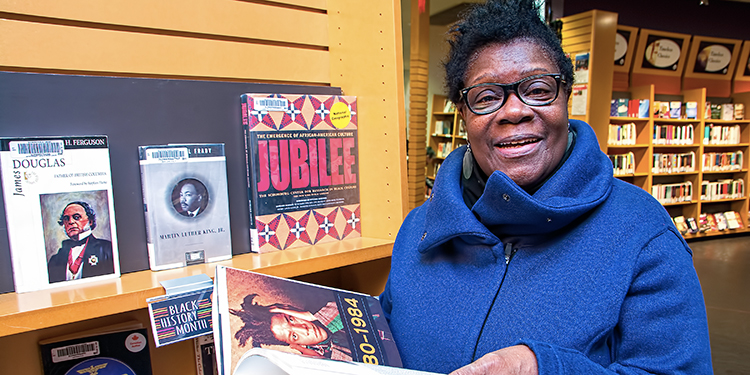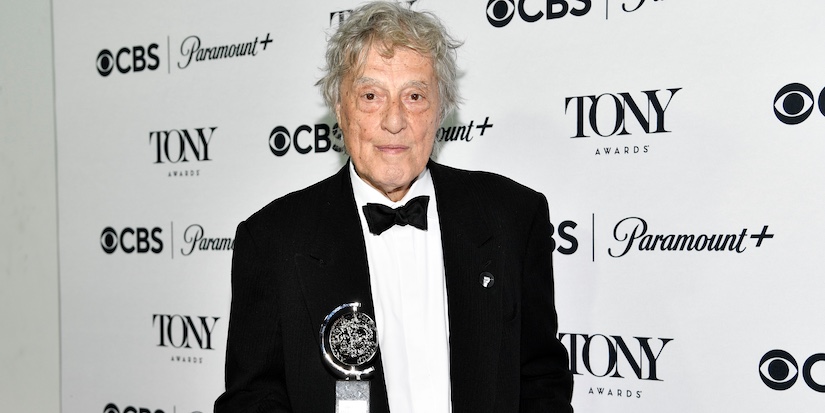Latest News
Richmond’s Black History Month kick off
Published 4:27 PST, Wed February 6, 2019
Last Updated: 2:12 PDT, Wed May 12, 2021
Richmond kicked off Black History Month in
style on Friday, Feb. 1 at the Arts Centre. In an evening of entertainment and
thought-provoking presentations, chief organizer, Mary Wilson, was never far
from the sidelines but never in the spotlight.
Wilson is clear that while she may have
spearheaded this year’s program, as she has for the past three years, this
initiator of the program quickly points out that she is but one of many who
pitched in.
The kick-off evening offered music from the
McNair Jazz Combo as people took to their seats. Emcee Shiraine Haas introduced
Terry Point of the Musqueam First Nation. Richmond is on the traditional and
unceded land of the Musqueam. Point offered a welcome song to get the evening
rolling then said, “Remember who you are. We are not so different. The
teachings from all our ancestor make us who we are.”
Point went on to say, “Black History Month
shouldn’t be just a month. It should be what we live every day.”
Haas added, “May that be something we work
towards.”
In her remarks as acting mayor, Coun. Linda
McPhail introduced fellow councillor Bill McNulty and then said, “The local
Black-Canadian community here in Richmond is extraordinary.”
McPhail said that though the number of
Canadians of African ancestry is small, “They have made significant,
substantial contributions to our province throughout its history.”
Representing Canada Post, Jackie Bailey
unveiled this year’s Black History Month stamp honouring Albert Jackson of whom
she said: “He overcame racism while he persevered in his career as a letter
carrier for 36 years.”
After vibrant music from Checo and the VOC
Sweet Soul Gospel Choir, was keynote speaker, Dr. Carole P. Christensen. She is
the first person of African ancestry to be named head of the University of
British Columbia’s School of Social Work. (While there, Christensen also
appointed the first Indigenous professor of social work.) Before she retired
from UBC, Christensen also started the East Vancouver Multicultural Centre
which thrives to this day.
The multilingual professor emeritus,
Christensen learned Danish while living there as a Fulbright Scholar. She also
fell in love with a Danish computer scientist. They married and moved to
Montreal. After working at McGill, the family moved to Richmond to raise their
family where Christensen took up her faculty position at UBC.
Her talk, “Black in Canada: Acknowledging the
Past and the Present to Envision the Future,” dispelled many myths.
“Most don’t know there were blacks in Canada
400 years ago. Mathieu Da Costa, who was Black, translated Indigenous languages
for (explorer and colonizer) Samuel de Champlain in 1608.”
Christensen spoke of the 200 years of Black
slavery in Canada: “In 1608, the first slave was sold in New France. In New
Brunswick, Nova Scotia and Ontario, Blacks were legal chattel,” considered in
the law as livestock.
Christensen said, to dispel another myth, in
the days of the underground railroad, Canadians were not always the nice ones: “Sometimes
Canadians turned them over to US slave masters.”
Christensen also spoke of objective and
systemic forms of racism saying the last segregated schools closed in Ontario
in 1965. Nova Scotia’s last one closed in 1983.
She said of yet another myth, that Canadians
of African-descent never recovered from slavery: “The Black community is
resilient. They have established many institutions. When Blacks succeed, their
Black identity is not mentioned.” Earlier,
Sir James Douglas’s Black mother was brought to the audience’s attention.
Something that, at the time, caused him to be discriminated against by the
likes of Richard Clement Moody (after whom Port Moody is named) for Douglas’s
racial heritage and his wife’s Indigenous heritage.
Christensen pointed out that Blacks cannot be
treated as an ethnic group. “We are not a community by nationality, tradition
or origin. For instance, there are 500 distinct languages in Nigeria alone. In
Canada, over half of those who check “Black” are Canadian-born.”
Christensen encouraged all Canadians to try
some social action: “There are many groups here you can join. If you have
school-aged children, ask their teacher.”
Organizer and founder, Mary Wilson briefly
took the stage to say: “Black history is part of Canadian history.”
Wilson she then closed the evening by
thanking VanCity for supporting this event, as well as thanking those who also
worked to make Richmond’s Black History Month a success: from the library–Wendy
Jang, from city hall–Dorothy Jo, and the arts centre– Camyar Chaichian.
All events for Black History Month in Richmond
are free of charge, including a month-long book exhibit at the main branch of
the Richmond Public Library. Everyone is encouraged to attend.
As Christensen says, “The best way to fight
stereotypes is to get to know each other.”































